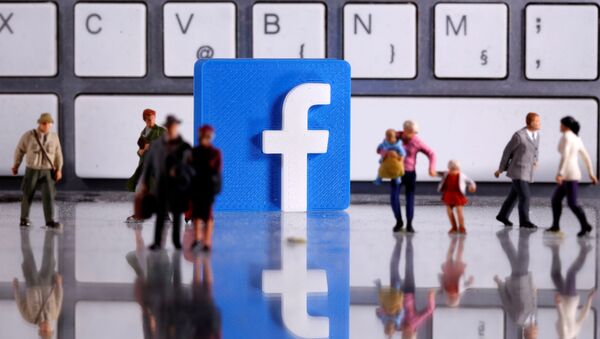Dr Binoy Kampmark, Senior Lecturer from RMIT University says that Facebook has skilfully promoted itself as indispensable to businesses globally and think's that corporate advertisers are unlikely to leave until users start to leave Facebook in large numbers.
Sputnik: Facebook changed its rules on hate speech in advertising, but this was not enough for companies and they are leaving the platform en masse. What else do you think Facebook needs to do to keep corporations and advertisers on their platform? And what do Facebook advertisers expect in general?
Dr Binoy Kampmark: Facebook advertisers see the platform as ideal because of the reach it has. As long as that reach remains intact, these gestures remain somewhat hollow. It will be interesting, for instance, to see how long this boycott actually remains. That said, it is true that the names of those companies behind the #StopHateForProfit campaign (Coca Cola, Unilever, Honda) are big hitters capable of landing a few blows to the platform. They have decided that sacrificing access on the platform is a price worth paying in the short term. This means that Facebook's global marketing department has its work cut out for it to keep some advertisers happy on this point, though Carolyn Everson, the Vice-President of Global Business Solutions, insists that boycotts will not alter the policies of the company. This must be seen as a long game and it is hard to see such companies not returning to the stable as long as Facebook engages in such cosmetic adjustments.
Sputnik: Some corporate advertisers are pledging to give up Facebook’s captive audience. In your opinion, how far will this trend go?
Dr Binoy Kampmark: This trend will have its limits. Until users start to leave Facebook in large numbers, it is unlikely that corporate advertisers will do the same, given the vast access the platform garners. Facebook has skilfully promoted itself as indispensable to businesses globally. There will be the usual disingenuous display of concern expressed through social media and hashtag campaigns, but most of this lies, ultimately, in the brief titillation of branding rather than an enduring perspective on ethics. (Coca Cola's boycott, for instance, is only for 30 days.) Patience will out, and Facebook CEO Mark Zuckerberg has shown himself to be a model of amoral patience.
Sputnik: How can such a step affect the e-commerce industry and the politics of facebook in general?
Dr Binoy Kampmark: It has the modest potential to adjust e-standards in the commerce environment, but it also presents us with the danger that Facebook itself becomes a political player. It has already been argued that Zuckerberg has been keen to stay cosy with US President Donald Trump in not taking Twitter's lead in calling him out on questionable political messaging. The reality for such platforms is that policing such measures can have the effect of vesting censorship powers in the platform and restrict access to material deemed 'hateful'.
Sputnik: The corporate brands that have announced Facebook boycotts are a sliver of the platform’s $70 billion in annual advertising revenue. How does this hit the economy of a giant like Facebook?
Dr Binoy Kampmark: In truth, the effects of such a boycott lie more in the realm of image than in actuality. But it is clear that Zuckerberg is hoping to address it in some ways, despite the small impact on the bank balance. His announcement on new hate speech and misinformation rules on the platform suggests that but such measures are reactive gestures more than anything else.
Sputnik: Could this practice, similar to the massive leaving of corporate advertisers become a new reality? Is it worth lying that companies, under various pretexts, will more and more modify the policies of platforms like Facebook?
Dr Binoy Kampmark: This returns to the original point on how deeply such boycotts cut. To have effects beyond the virtue signalling context, users must themselves be convinced that the platform is unviable for their "user experience". In reality, that is yet to surface. Facebook is a creature onto itself, with Zuckerberg at the helm, and we face the paradox that controlling the way it handles information may lead to encouraging it to exercise powers contrary to the open information environment.



